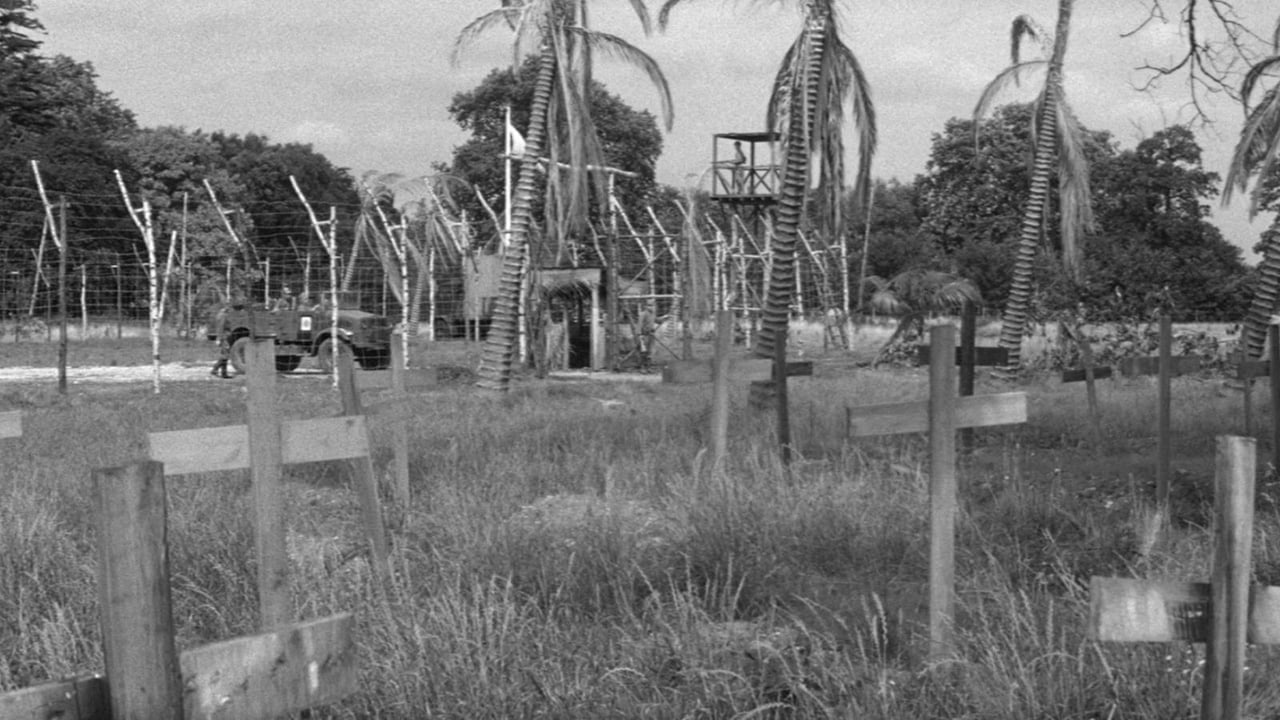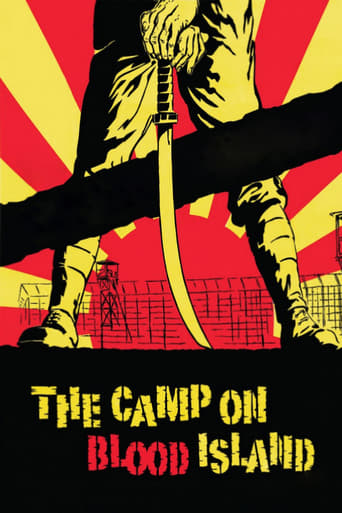



Better Late Then Never
It's the kind of movie you'll want to see a second time with someone who hasn't seen it yet, to remember what it was like to watch it for the first time.
View MoreThe film's masterful storytelling did its job. The message was clear. No need to overdo.
View MoreOne of the film's great tricks is that, for a time, you think it will go down a rabbit hole of unrealistic glorification.
View MoreThe links with "Bridge on the River Kwai" go further than just the Japanese prison-camp setting and the presence of Andre Morell; there is the same theme of the commanding officer whose behaviour seems increasingly unreasonable in the face of the prisoners' privations, the lone American contrasted with the starved Commonwealth soldiers, and a morally ambiguous ending. In some ways this Hammer production suffers less from political compromise, not being required to introduce an American leading actor for the benefit of the US box office, but it has to be said that whatever flaws may exist in David Lean's film, "The Camp on Blood Island" is ultimately no competition. It's a decent and sometimes brave picture (even the women are shown hounding the suspected collaborator in their midst) but it doesn't hold the same seeds of greatness.There is some fine acting on display, both from the actors playing the Japanese, who convey a sense of alien culture without becoming ridiculous, and those portraying the physically drained and starving prisoners: the opening shots of the young man struggling to dig his own grave are actively disturbing, both for his apparent emaciation and for his dragging movements of utter collapse. Andre Morell, of course, dominates the film as the obstinate and authoritarian Colonel Lambert, and in a sense the plot structure consists of gradually justifying his seemingly unreasonable behaviour -- but it is not that simplistic, and the revelation of the final consequences of his decisions (was it, ultimately, all unnecessary?) leaves a note of deliberate ambiguity.The prisoners in the women's camp are, perhaps inevitably, shown as rather more glamorous than their male counterparts, with their fetching dishevelment a token gesture towards the starvation and illness stated in the script. Barbara Shelley, playing Kate, does appear rather too healthy in her close-ups for the degree of weakness and collapse she is supposed to portray during her escape. But unsurprisingly this is a male-dominated film, and all the really intriguing characters are male. Lambert himself, and the fretful diplomat Beattie, chafing under what he sees as the military mishandling of their situation. Father Paul, jeopardising his life and his cloth to pass messages via the medium of the funeral Mass. The former planter Van Elst, driven to repeated risky sabotage. For a film that was condemned on release for its 'orgy of atrocities', "The Camp on Blood Island" is actually quite restrained in what is implied, let alone shown on screen: the horrors and Japanese 'bestiality' are as much psychological, based on petty humiliation and anticipation, as anything else. This is not torture porn -- the worst that we see is machine-gunning, plus one clean beheading. ("Bridge on the River Kwai" actually goes further in this respect.) But there is never any doubt that the prisoners' situation is horrific, and that ultimately they are prepared to throw lives away in a desperate attempt at group survival.
View MoreI saw this movie when I was fairly young and the scenes never left my memory. I could not get over the way the actors looked as if they had just been rescued from real Japanese POW camps. How could they get actors so skinny to play the parts? I thought they were real prisoners.Although shot in black and white the realism is terrifying and not for the faint hearted.It was so intense it's no wonder the politically correct brigade buried it but it was a true story and true to life in it's portrayal.I doubt it could be remade as good but it would be good if they could. One of the most moving movies I have ever seen. Can anyone get me a copy?
View MoreWhile not as good as the one poster comments, it is by no means as bad as the other reviewer says. Yes, there is some shoddy make-up of the Japanese guards, but if you can ignore that you will find the story itself is good enough to carry the film. A group of Allied p.o.w.s are in a camp controlled by a less than friendly commander. He shoots prisoners for sport and works the rest to death in a local mine. He has also let it be known that if Japan loses the war he will kill all the prisoners. The p.o.w.s find out the war has ended and stage a revolt with homemade weapons and some grenades they had hidden at the bottom of a latrine. Not a world winner but an OK time-waster.G.G.
View MoreExcellent war movie.Is this film available on video/DVD? Again it is one of those films that appears to have disappeared Into cinema history. Being made in black and white seems to give the film more authenticity. Carl Mohner is excellent as the leader of the prisoners.It is difficult to say anything negative about this movie. The plot is straightforward,but riveting.The Japanese do not know the war is over.The prisoners have found out and are fearful of what will happen to them once the sadistic camp commander acquires this knowledge. The allies are getting closer and the tension mounts.Don't miss this one if it comes to the small screen.Althougth perhaps not in the same league has "the Bridge over the River Kawi" or "The Great Escape" it is still nevertheless an excellent P.O.W. movie in its own right.So why isn't it on DVD?
View More